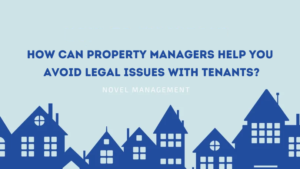Renting and selling are two common ways to make money from a property. However, choosing between the two can be a tough decision for Miami homeowners. With its beautiful beaches, warm weather, and diverse culture, Miami is an attractive location for both renters and buyers.
In this guide, we will explore the benefits and drawbacks of renting and selling in Miami. We will analyze market trends, financial considerations, and other factors that may influence your decision. By the end of this guide, you will have a better understanding of which option may be better for you based on your goals and circumstances.
So whether you’re a homeowner looking to make a profit, or someone looking for a place to live in Miami, read on to learn more about the pros and cons of renting and selling in this vibrant city.
What is renting?
Renting is a process of leasing out a property to someone for a specific period in exchange for regular payments, known as rent. This arrangement allows tenants to live in a property without owning it, while the landlord maintains ownership and responsibility for the upkeep of the property.
In Miami, renting is a popular option for both long-term residents and tourists. Many people choose to rent in Miami due to its high cost of living and expensive real estate market. Renting offers flexibility, as tenants have the option to move after their lease ends, making it an attractive choice for those who are not ready to commit to buying a property. Additionally, renting often includes amenities such as utilities, maintenance, and security that the landlord is responsible for, making it a hassle-free living option.
However, there are also drawbacks to renting in Miami. Rent prices can be high and continue to rise due to demand. Tenants may also face unpredictable rent increases or strict lease agreements that limit their ability to make changes to the property.
What is selling?
Selling is the process of transferring ownership of a property to another party in exchange for a lump-sum payment. In Miami, selling is a popular choice for homeowners looking to make a profit from their property investment.
One major benefit of selling is the potential for a higher return on investment compared to renting. Homeowners can also avoid the hassle and responsibility of being a landlord. Additionally, with Miami’s real estate market experiencing steady growth, there may be an opportunity for homeowners to sell at a significant profit.
However, selling also comes with its own set of challenges. It requires time and effort to find potential buyers and complete the sale process successfully. Homeowners may also face capital gains taxes and other financial considerations when selling a property. Additionally, if the market is not in their favor, homeowners may have to settle for a lower price than they initially expected.
Ultimately, the decision between renting and selling in Miami depends on various factors such as personal financial goals, current market conditions, and lifestyle preferences. It’s essential to carefully consider these factors before making a decision that best suits your needs.
Main Deffernces between Renting and Selling in Miami
Both renting and selling have their advantages and disadvantages when it comes to the Miami real estate market. Here are some of the main differences between renting and selling that homeowners should consider before making a decision:
- Investment return: Renting offers a steady stream of income through monthly rent payments, while selling can potentially provide a higher return on investment in the form of a lump-sum payment. Plus, homeowners who sell can use the profits to invest in other properties or ventures.
- Market trends: The Miami real estate market is constantly fluctuating. Renting may be a better option during times of high demand and rising prices, while selling may be more beneficial when the market is favorable for sellers.
- Responsibility and flexibility: Renting requires less responsibility for the homeowner as landlords are responsible for maintenance and repairs. However, homeowners cannot make significant changes to their property without consulting their landlord. Selling offers more freedom from ownership but also comes with the added responsibility of finding a buyer and completing the sale process.
- Tax considerations: Renting can provide tax deductions for homeowners, while selling may result in capital gains taxes. It’s essential to consult with a financial advisor to understand the tax implications of each option.
Ultimately, it’s crucial to carefully consider these differences and determine which option aligns better with your goals and circumstances before deciding whether renting or selling is the better choice for you in Miami.

Does it make a difference in Miami?
In Miami, the decision between renting and selling can have a significant impact on both homeowners and renters. The high cost of living and real estate market in Miami makes this decision even more crucial.
For homeowners, choosing to rent or sell their property can affect their financial stability, future investments, and lifestyle. Renting may provide a steady source of income, whereas selling can potentially offer a larger sum of money for further investments. In contrast, renters must consider factors such as rent prices and lease agreements when deciding on their living situation.
The decision also impacts the overall housing market in Miami. A higher number of rentals can lead to an increase in rental prices, making it challenging for individuals and families to find affordable housing. On the other hand, a rise in home sales can drive up property values, making it difficult for potential buyers to enter the market.
Average Rent vs. Average Home Price in Miami
The average rent and average home prices in Miami are both relatively high compared to other cities in the United States. According to Zillow, the median rent price in Miami is $2,000 per month, while the average home price is around $390,000.
The cost of living and demand for housing contribute to these high prices. The influx of tourists and seasonal residents also drives up the demand for rental properties, leading to increased rent prices.
On the other hand, the average home price reflects the competitive real estate market in Miami. With limited inventory and high demand, sellers can often list their homes at a higher price and still find buyers willing to pay.
Comparing the two, selling seems to offer more significant financial gains in Miami than renting. However, this decision ultimately depends on individual circumstances and goals. For some, the stability and consistent income from renting may be preferable, while others may see more potential for profit through selling.
Tips for Renting or Selling in Miami
No matter which option you choose, there are some essential tips to keep in mind when renting or selling a property in Miami:
- Research the market: Understand current trends and prices in the Miami real estate market to make an informed decision.
- Set realistic goals: Whether it’s rental income or profit from selling, setting realistic goals will help guide your decision-making process.
- Consult with professionals: Seek advice from a financial advisor, real estate agent, or lawyer to understand the legal and financial implications of your decision.
- Consider tax implications: As mentioned, both renting and selling can have tax implications, so it’s crucial to consult with a professional for guidance.
- Assess the condition of your property: For sellers, making necessary repairs and updates can help increase the value of their property. Renters should also ensure that the rental property is in suitable living conditions.
- Understand legal obligations: Renters should carefully review their lease agreement, while sellers must comply with all laws and regulations related to selling a property in Miami.
By keeping these tips in mind and thoroughly evaluating your options, you can make an informed decision that best suits your needs when it comes to renting or selling in Miami.

FAQs
What are the advantages of renting out a property in Miami?
Renting out a property in Miami can provide positive cash flow and passive income through rental profits. With the help of a property management company, you can efficiently manage your rental property, ensuring rent growth and steady cash flow over time.
How do real estate prices and property taxes affect the decision to rent or sell in Miami?
Real estate prices and property taxes significantly impact the decision to rent or sell a property in Miami. In a seller’s market, high real estate prices might make selling more attractive. However, if property taxes are manageable and rental profits are high, renting can be a better option for generating passive income.
What role does a top real estate agent play in deciding between renting and selling?
A top real estate agent can provide valuable insights into the Miami real estate market, helping you decide whether renting or selling is better. They can analyze market trends, real estate prices, and potential rental profits to guide your decision.
How can a property management company help if I decide to rent my property in Miami?
A property management company can help manage your rental property by handling tenant screening, rent collection, and maintenance. This professional management ensures a positive cash flow, steady rent growth, and overall smooth operation of your rental property.
What factors should I consider regarding mortgage payments and paying rent when deciding to rent or sell in Miami?
When deciding to rent or sell in Miami, consider your mortgage payments and the potential rental income. If the rental income can cover mortgage payments and property management fees while still providing positive cash flow, renting might be more beneficial. Additionally, consider rent growth potential and long-term passive income compared to immediate gains from selling in a seller’s market.
Conclusion
In conclusion, the decision between renting and selling a property in Miami is not an easy one. It requires careful consideration of various factors, such as investment goals, market trends, responsibilities, taxes, and conditions of the property. While renting may offer a steady stream of income, selling can potentially provide a significant return on investment.
Additionally, this decision has a broader impact on the Miami housing market and its residents. The high cost of living and demand for housing make it crucial to carefully weigh the pros and cons before deciding whether to rent or sell your property.
Renting vs. Selling in Miami: Which Option Maximizes Your Investment? Explore with Novel Management. Utilize our premier services to enhance your property decisions. Reach out today and experience the difference we can offer!




